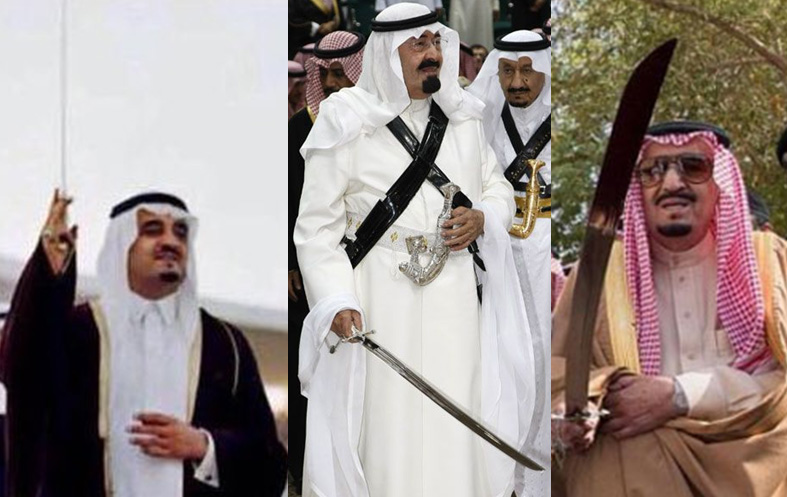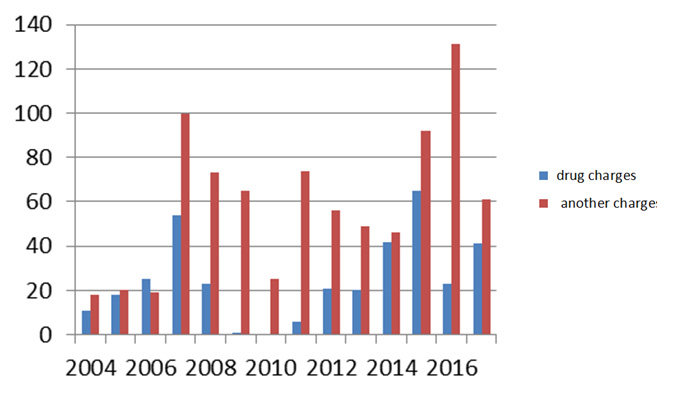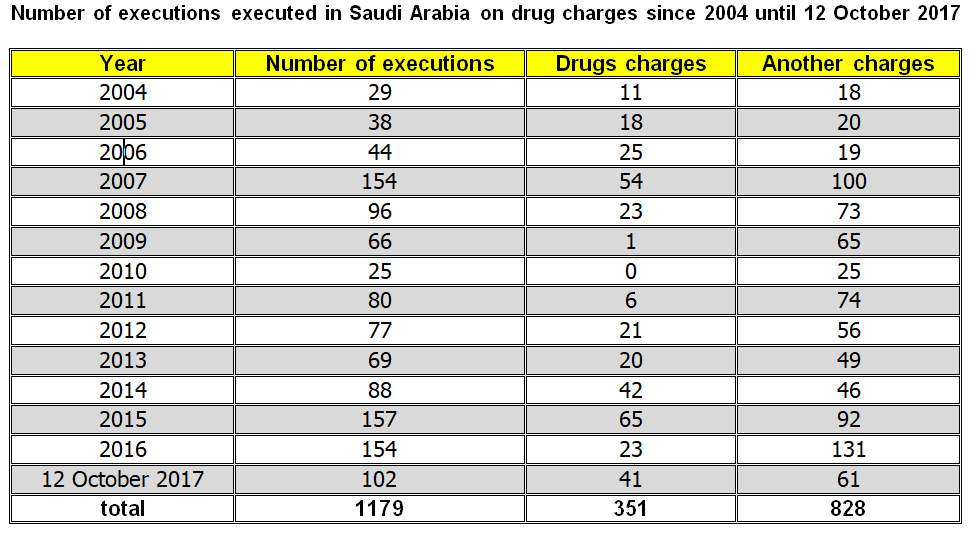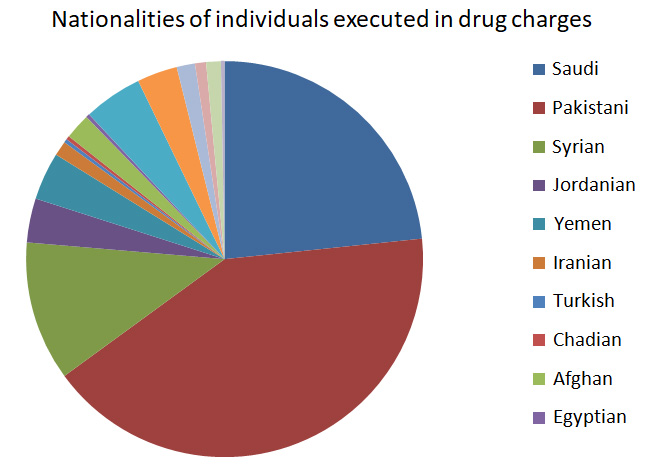
“Saudi Arabia is one of four countries responsible for 87% of all recorded executions in 2016”, stated UN Secretary-General Antonio Guterich at an event held at the headquarters of the International Day against the Death Penalty on 10 October 2017.

Since 2004 until October 10, 2017, the Saudi government implemented the death penalty against 1,179 individuals on multiple counts; about 29.8% of the sentences (351 of said executions) were related to the drug trafficking and smuggling of various types of drugs (heroin, amphetamine, marijuana).
Saudi Arabia claims that its application of the death penalty as a penalty for traffickers or drug abusers is an effort in their fight against illegal drugs, which causes serious harm to the society. Regardless, their actions are flagrant violations of international law, which obliges nations only apply the death penalty to “the most serious crimes,” which usually means convicted intentional homicide.

Saudi Arabia claimed that its application of the death penalty to drug traffickers was aimed at protecting the society and police; for example, Major Turki Hamza al-Rashidi, a former officer in the General Directorate for Drug Control in Saudi Arabia, became well known for the now-famous YouTube video published on April 27, 2016, in which he claimed that he was threatened to be killed by a large organized crime group of drug dealers, including companies and powerful figures in banks and the Saudi Interior Ministry, because he discovered their names and plans for smuggling drugs going back for nine years.
Al-Rashidi had stated that smuggling is usually carried out in the Hajj season by way of bus convoys and forged passports. He also noted that he had been removed from his workplace and subjected to severe harassment then later transferred to retirement after handing over evidence that convict those who were involved in the operation to Major General Sultan al-Harthi.
Al-Rashidi had appealed to King Salman for protection from those who have considerable influence in the Saudi Interior Ministry, which enabled them to falsify official documents to imprison him with the aim of killing him (Al-Rashidi) in prison. Al-Rashidi later appeared in a subsequent recording, reiterating his appeal to the king and his other statements his claims about the organized drugs traffickers.
On May 9, 2016, al-Rashidi was arrested from his home; no information about him was available or presented to the public. The Ministry of the Interior did not comment on what he said, even with the widespread and popularity of the video he published on Twitter.
The European Organization for Human Rights calls on the Saudi government to immediately stop the implementation of the death penalty for drug offenses because it is a direct violation of international law.

